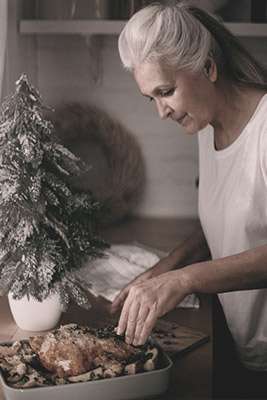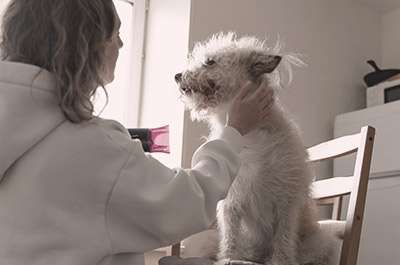All women want to age well. But what does that actually mean? And how do we go about it? In this post, we’ll explore some of the key things you can do to age gracefully – and feel great doing it! So whether you’re just starting down the aging path or you’re already a few years in, read on for tips that will help you age well.
Use sunscreen and moisturizer to protect your skin.
Even if you haven’t seen the signs of aging yet, now is the time to start protecting your skin. As we age, our skin becomes thinner and less elastic—it wrinkles more easily, doesn’t bounce back as quickly from injury or sun exposure, and it’s slower to heal itself.

You can help reverse some of these effects by using sunscreen every day and a moisturizer to keep your skin hydrated.
Your skin is your body’s largest organ, so treat it well. Take extra care to protect it from the sun’s ultraviolet (UV) rays by wearing sunscreen every day. If you’re outside, even on cloudy days, wear a wide-brimmed hat and clothing that covers your arms and legs to protect yourself from the sun’s rays further.
You can also use products to reduce the visibility of veins, age spots, and skin tags. If you have issues with these kinds of things, check with your dermatologist to see what options might be available for you.
Stay active by taking walks, biking, or swimming.
We all want to be as active as we can for as long as possible. As you age, just one of the benefits of staying active is that it keeps your bones strong and healthy. In fact, after age thirty, bone mass begins to slow down and becomes more susceptible to osteoporosis, a condition where the bones become porous and fragile.
But even if you think it’s too late, the good news is that it’s not! Just one hour of weight-bearing exercise each week can help strengthen your bones. And starting at age 65, you should have a bone density test every two years to check for osteoporosis. It’s important to catch it early so that prompt treatment can prevent serious injury.
Aerobic exercise is another way to stay active and improve your health. Walking at a pace of two miles per hour or slower is ideal for improving your cardiovascular fitness—while still allowing you to enjoy the scenery around you.
Swimming in pools, lakes, rivers, ponds or the ocean is another great way to get exercise. Being in the water has several benefits—it prevents overheating, so it’s safer for people with heart conditions; it buoys you up, so it’s easier on bones and joints, and it reduces hydrostatic pressure on your body so that you can swim longer without feeling tired.
Get plenty of sleep.
As you age, your sleeping pattern may change—you might find yourself sleeping for shorter periods at a time or needing more sleep to feel rested. There are many reasons why this happens, and it’s important to figure out what works best for you.
It may be that you’re engaging in late-night activities that leave you energized. If so, try to fit those activities into your daytime hours and turn off electronics before bedtime.
Or maybe you’re just feeling the effects of aging: as we get older, our bodies tend to produce less growth hormone and change how much melatonin we create – both of which can affect sleep patterns. Again activities like playing active games instead of watching TV before going to bed can help.
Eat a balanced diet.

A balanced diet includes foods from all food groups (healthy fats, vegetables, fruits, and protein). Eating a healthy diet can help you maintain a healthy weight—which is vital for overall health. For example, being overweight or obese increases your risk of heart disease, diabetes, and certain cancers.
A balanced diet includes a variety of meats, fruits, and vegetables daily. Adults need seven to nine cups of produce each day for optimum health.
Our metabolism naturally slows down as we age, so there’s no point in starving yourself. But sticking to a balanced diet is essential for your health and makes you feel better, too.
Don’t forget about dental exams!
As you get older, your mouth may change in ways that make it harder for you to keep up with oral hygiene. If you have fewer teeth, they may be more sensitive or even missing—and it can be more challenging to brush them adequately. You might also need different types of floss and mouthwash than when you were younger.
Did you know that your teeth can give clues to the state of your overall health? Visiting your dentist regularly for dental examinations can help them identify any problems or issues early on. For example, if you’re not flossing daily, bacteria may build up between your teeth—and over time, this could lead to tooth decay and gum disease.
Oral bacteria can also enter the bloodstream and cause problems elsewhere in your body. Your dentist can help you find a dental care routine that works for you, so it’s important to keep up with these visits as you age.
Oral health is important at any age, but it’s even more so when you get older. Dental problems can make chewing and eating difficult—which can cause malnutrition and weight loss. Poor oral health is also closely linked with heart disease, diabetes, respiratory disease, and other chronic illnesses.
All the benefits of healthy aging start with healthy habits that last a lifetime!
Stay social.
It’s essential to stay connected with friends, family, and other people in your community—especially as you age. Socialization can improve your overall well-being by reducing stress, boredom, and depression. It can also support positive behaviors so that you continue to engage in healthy activities like eating right, exercising regularly, getting enough sleep, and managing chronic conditions.
There are many ways to stay socially active; it might be something you regularly did in your younger years—or you can try new activities like trying out a local book club or cooking class. Social interaction can also include volunteering, which is rewarding for you and helps others and the environment.
Keeping up with these connections can help reduce feelings of loneliness and depression, which are big problems for older adults. It also supports you and can be a source of new ideas and activities—as well as great stories that you’ll cherish for years to come!
Try a new hobby.

Hobbies are a great way to stay active and engaged as you age, but it’s important to try out activities you enjoy. After all, if a hobby isn’t fun—or if it becomes too challenging—you’re less likely to continue with the activity over time. It can also be helpful to try new things to keep your mind sharp and prevent boredom.
For example, if you enjoy spending time with friends but have been playing sports or going to the gym regularly in previous years, a hobby like reading might be a good alternative for socializing and staying active. Or, if you’ve been spending a lot of time cooking in the kitchen, you might want to try a new and different activity like gardening.
It’s also important to prioritize your health by setting time aside for hobbies each day. It may not seem like you have much free time when you’re juggling family, work, and other responsibilities—but carving out even just a little bit of time can help you stay active in an engaging way.
Travel!
Travel is more than just a fantastic way to spend some time off. It also can be a healthy pursuit! You may have traveled more in the past, but if it doesn’t fit into your routine these days, don’t let that stop you from exploring new places and people.
Whether you travel near or far—or even choose to stay closer to home—visiting new places can help you learn about new cultures, people, and ways of life. It shows that you’re open to change and positively impact the community. Plus, exploring local nightlife or going on a day trip is a great way to socialize and connect with others.
Don’t forget about the value of travel for your mental health, too. Researchers have found that people who travel tend to experience higher well-being and live longer than those who don’t get out much.
Take care of your mental health by seeing a therapist.
It’s essential to take care of your mental health at every stage of life, but it’s crucial as you get older. Not only can a healthy mind helps you live a happier and more fulfilling life—but it also plays a key role in managing chronic diseases and conditions that come with age, such as heart disease or Alzheimer’s.
One way to take care of your mental health is by seeing a therapist who can help you work through problems or come up with coping mechanisms that help you face challenges in daily life. Seeing a counselor allows you to explore your thoughts and feelings, preventing emotional difficulties from taking over your life.
It can also connect you with support groups—so if there’s something specific that you’re dealing with, like stress or anxiety due to the death of a loved one, you can connect with others who are going through similar issues.
Get a pet!
Having a pet can lower your risk of heart disease and reduce anxiety and loneliness. Even something small, like a goldfish or plant, can help!

A pet can motivate you to get out of the house every day and provide you with companionship in good times and bad. It’s a great way to get some regular exercise, too.
Taking a dog for a daily walk can provide you with a chance to socialize with others and may help you feel better about yourself. On the other hand, Cats are often more independent—but they can still give you a chance to bond with another living thing.
It’s also important to take good care of your pet—and that includes being mindful of their needs when it comes to food, entertainment, and play. For example, providing toys like puzzle feeders for your cat can prevent boredom while also giving them something to do while you’re away.
Pets are perfect for getting out and about and making you happy!!
Conclusion.
As a woman, the best way to age well is by embracing your body’s changes as you grow older. Make sure to take care of yourself and keep up with regular doctor visits, exercise, and healthy eating habits. It’s never too late for a new beginning!
Please feel free to share this article if you like it!

Meet Marcella Raskin: Founder, Editor-in-Chief, and a Maven in Human Potential
Dive into the rich tapestry of Marcella Raskin’s life and you’ll discover more than just an editor-in-chief. At the core, Marcella is a passionate writer, deeply committed to unlocking the boundless human potential. Armed with expertise in Cognitive Behavioral Therapy, Life Purpose Coaching, and Group Life Coaching, she’s carved a niche in helping both women and men unearth their true selves through the art of writing. Every article she pens is a gateway, inviting readers to shift mindsets and embrace transformation, even when change seems impossible.
Beyond her literary pursuits, Marcella is a fitness enthusiast, underpinned by her background in Exercise Physiology. And when she’s not empowering others or delving into the science of movement, she’s reveling in the joys of motherhood, raising two incredible girls, and sharing life’s moments with her beloved spouse.
Trust Marcella’s words; they’re backed by expertise, passion, and a journey full of learning and growth.
Reviewed By: Joanna Perez and Brenda Tillman
Edited By: Lenny Terra
Fact Checked By: Matthew Mansour
Photos Taken or Curated By: Matthew Mansour